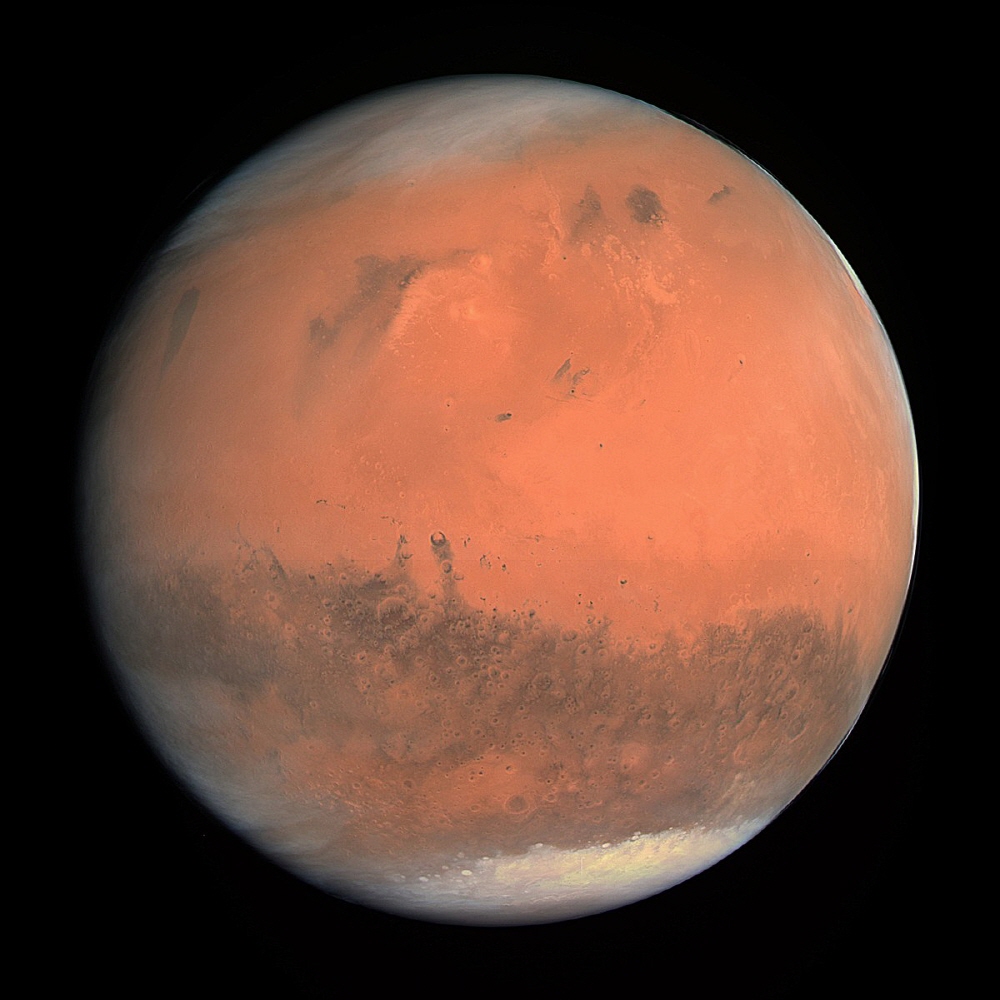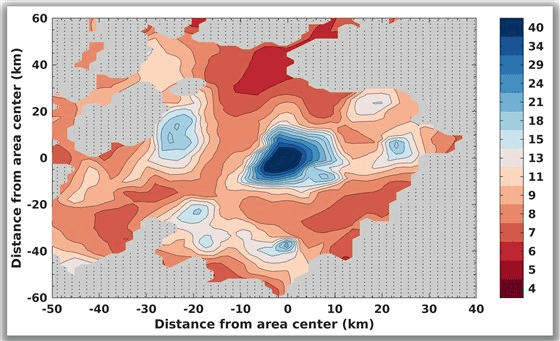
There are subglacial lakes in cold regions on Earth, such as Lake Vostok under the Antarctic ice, but a paper has been published suggesting that several similar lakes may exist beneath Mars. The discovery is expected to make life and traces more likely to develop on Mars.
In July 2018, a team of researchers from the National Astrophysical Institute of Italy announced that they had discovered a lake with liquid water beneath the ice of Mars’ Antarctica. The discovery was brought by the Mars rover Mars Express, and it is estimated that the single ice-bottom lake found at this time alone contains more than 10 billion liters of liquid water.
The Martian Antarctic sub-ice lake discovered in 2018 was identified in 29 observations made between 2012 and 2015, and the research team’s paper conducted additional observations to support the findings. Based on data obtained from 134 observations from 2012 to 2019, a more extensive search was conducted than before.
As a result, it was newly discovered that there are three ice-bottom lakes several kilometers in diameter around the previously discovered ice-bottom lake with a diameter of 30 kilometers. The team is much more confident than before about the effect of this discovery, and explained that they processed the data in a completely different way than before, besides more observations.

Mars is cooler than Earth, and the surface temperature of Antarctica is minus 113 degrees Celsius. The underground lake is warmer than the ground, but fresh water cannot exist in a liquid state, so scientists speculate that the ice-bottom lakes found are likely to be quite salty. As with the Earth’s oceans, seawater can nurture life, but the problem is concentration. Experts said that if the salinity of the Earth’s oceans is 5 times higher, life can be maintained, but if the concentration is 20 times higher than that of seawater, life will no longer exist.
Some scientists also suspect the existence of an ice-bottom lake because the temperature of Mars’ Antarctica is so low. One expert said he doesn’t think there is any heat flow to sustain a liquid ocean under the ice cap, and that’s why he believes icebergs don’t exist. It is a counter-question that it is an incorrect expression to describe wet sediment as a lake.
Of course, the expert said that Mars may once have had a lot of water, and there is a possibility that life could be born when there was water. Expectations were raised that traces of life could be found in an ice-bottom lake considered to be a relic of a time when Mars had a lot of water. In the paper, the research team stated that the future mission to Mars targets the area where the ice-bottom lake was discovered, revealing the need for direct investigation by not only satellites but also the Tamsar rover.
The Tianwen-1 probe, launched by China on July 23, is currently heading to Mars, and exploration of Mars using its satellites and rover will begin in February 2021. Related information can be found here.


















Add comment